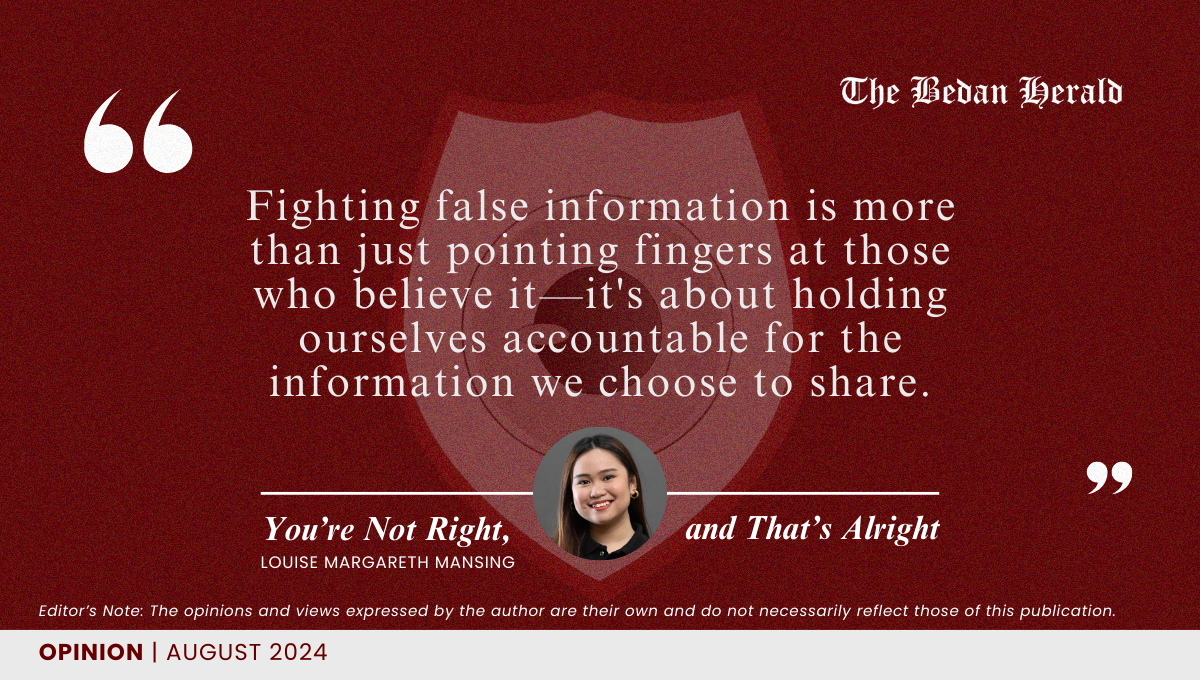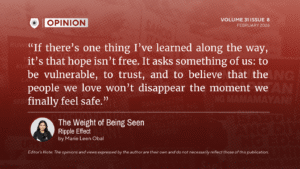By Louise Margareth Mansing | November 15, 2024
Mind Your Words
“NAKAKA-DEPRESS naman tong subject na 'to.” “OCD ka naman masyado!” “Bipolar ka ba?”— we’ve all likely heard or even used these expressions before. It’s almost second nature now, slipping into conversations whenever we want to describe frustration, tidiness, or changing moods. I honestly lost count of the times I've heard my family, friends, and even my co-majors in the field use terms like this. A habit that even I (with deep regret) face difficulty in mitigating. It's really easy to let our feelings control what we say. It’s only in the rare moment that we think, “Maybe I shouldn’t have said that.” But most of the time, do we even make the conscious effort to think about what we’re saying?
Terms like depressed, OCD, and bipolar — come from psychology and are all rooted in the real and humane struggles of the people who live with these mental health conditions every day. When we use them casually, we tend to forget about the experiences of these people, reducing them to mere expressions. “OCD” which refers to Obsessive–compulsive disorder, becomes the term we use for someone who’s too clean or proper-looking, “depressed” for feeling sad, and “bipolar” if we see someone who experiences a change in mood abruptly. But to someone who is actually diagnosed with these conditions, these words mean something far deeper, often tied to an incredibly difficult life.
As someone studying Psychology, I was given the humbling opportunity to learn more about the lives of those with these conditions. It also made me aware of the complex nature of these conditions and the sensitivity needed when discussing these topics. OCD, or obsessive-compulsive disorder, isn’t just about having this habit of keeping one’s things organized. It also involves intrusive thoughts and repetitive actions that those with the disorder simply can’t “turn off” or stop. Depression is persistent. It can even reach the point where it feels paralyzing. And having bipolar disorder isn’t just about experiencing multiple “mood swings.” It’s a cycle that those with the disorder are constantly dealing with. A cycle of manic highs and depressive lows that can disrupt their life.
This then brings us to the question: what’s the harm in using these words casually? Well, it’s not just about inaccuracy—it’s about creating a culture where mental health is trivialized. Imagine someone who is genuinely struggling with depression hearing a friend say they’re “depressed” because they didn’t like the subject being discussed. Or someone with OCD listening to others ask an individual if they have the condition because they had organized notes. These words, when used lightly, become dismissive. Using them without thought can reinforce harmful stereotypes, suggesting these conditions are just personality characteristics or short-lived behaviors rather than legitimate and difficult mental health issues.
When we misuse these terms, we’re not just being careless; we contribute to the already troubling misunderstanding around the problems of mental health. We make it harder for people to feel seen, heard and understood. Those who might need support may hesitate to seek help, feeling that their condition isn’t even that bad, as well as strengthening their fear of being misunderstood.
This isn’t just about us being accurate—it’s about respect. Psychology isn’t just vocabulary; it’s the language of human experience, of people fighting silent battles we may not fully understand. So, let’s do justice to that. Let’s choose words that acknowledge real struggles that break down stereotypes rather than build them. Ultimately, how we speak about mental health doesn’t just reflect our knowledge—it reflects our empathy.




